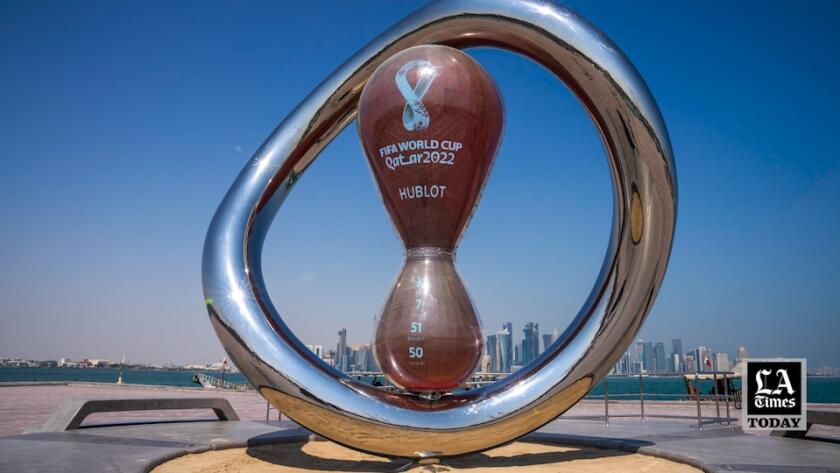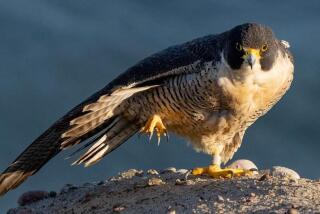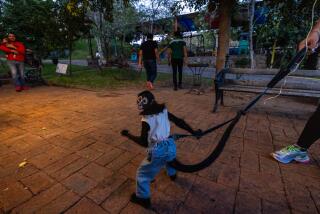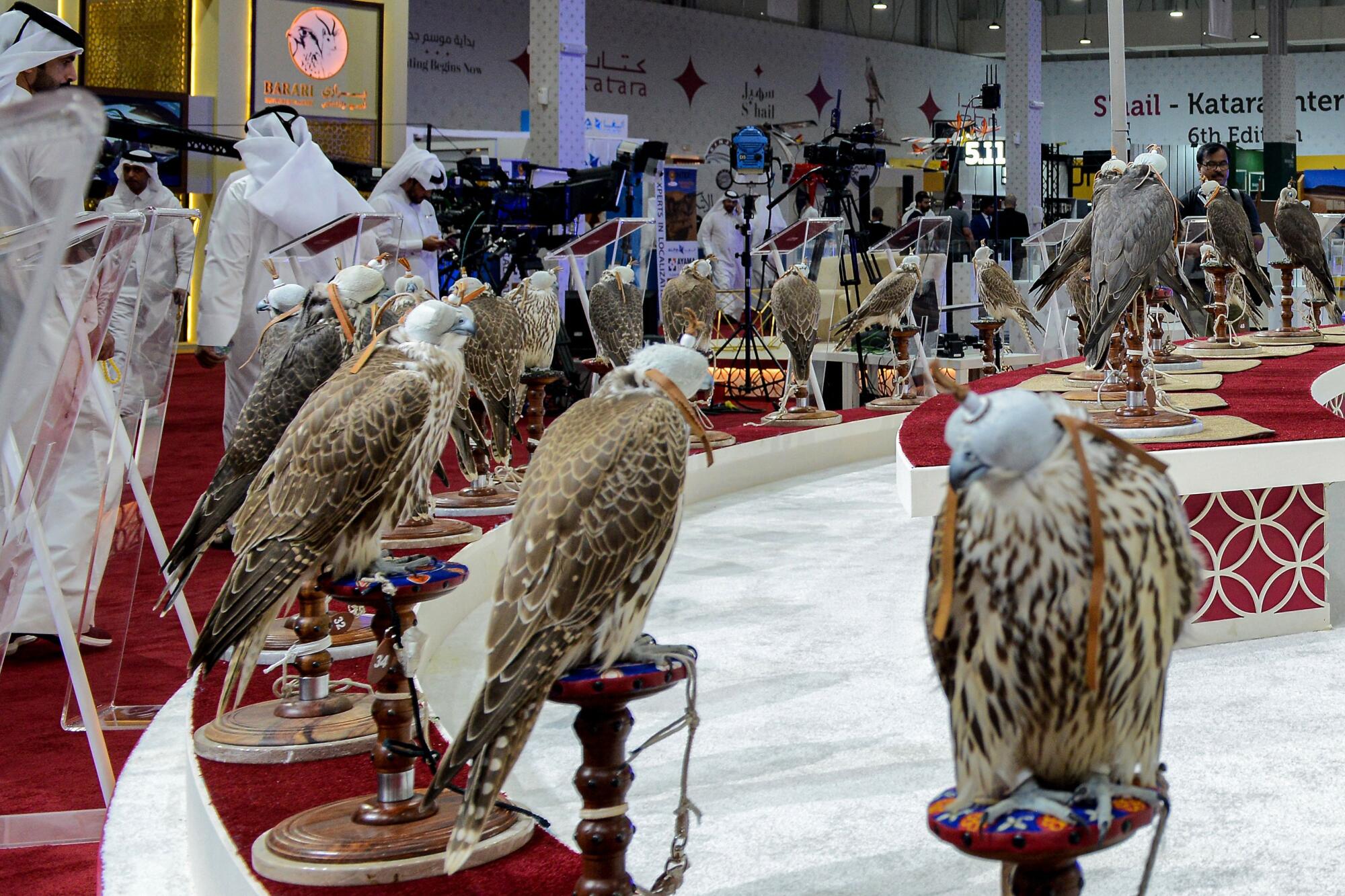
DOHA, Qatar — The Souq Waqif, Doha’s ancient marketplace, unspools from the nearby bay like a roll of precious fabric. A medieval maze of narrow alleyways linked to a wide main plaza, the Souq has long served as a trading post for Bedouin arriving by camel and travelers in small boats.
But today, as one of the city’s last surviving historic urban spaces, the Souq also serves the rapidly modernizing emirate as a link to a history and a culture that is fading. Nowhere is that clash of past and present more apparent than at the market’s falcon hospital, a state-of-the-art medical facility dedicated to caring for animals that have been revered here for centuries.
“In Qatar, falcons are a symbol of dignity, valor and pride,” said Dr. Ikdam M. Alkarkhi, the hospital’s Iraqi-educated director and veterinary consultant. “For Arabs, falconry was a way of life where every household, irrespective of their social or tribal status, enjoyed the presence of falcons around them. Falcons would be considered part of the family.”
Alexis Lalas and Stu Holden played in World Cups before broadcasting them and say the jobs are remarkably similar. Fox Sports’ TV team has several ex-players.
More than 1.2 million people are expected to flood Qatar between Nov. 20 and Christmas for soccer’s World Cup, the global championship of a sport that was little appreciated in the country just a generation ago. Falconry, however, has been the national sport since long before Qatar became a nation.
And it’s a cultural touchstone Qataris are eager to share with visitors.
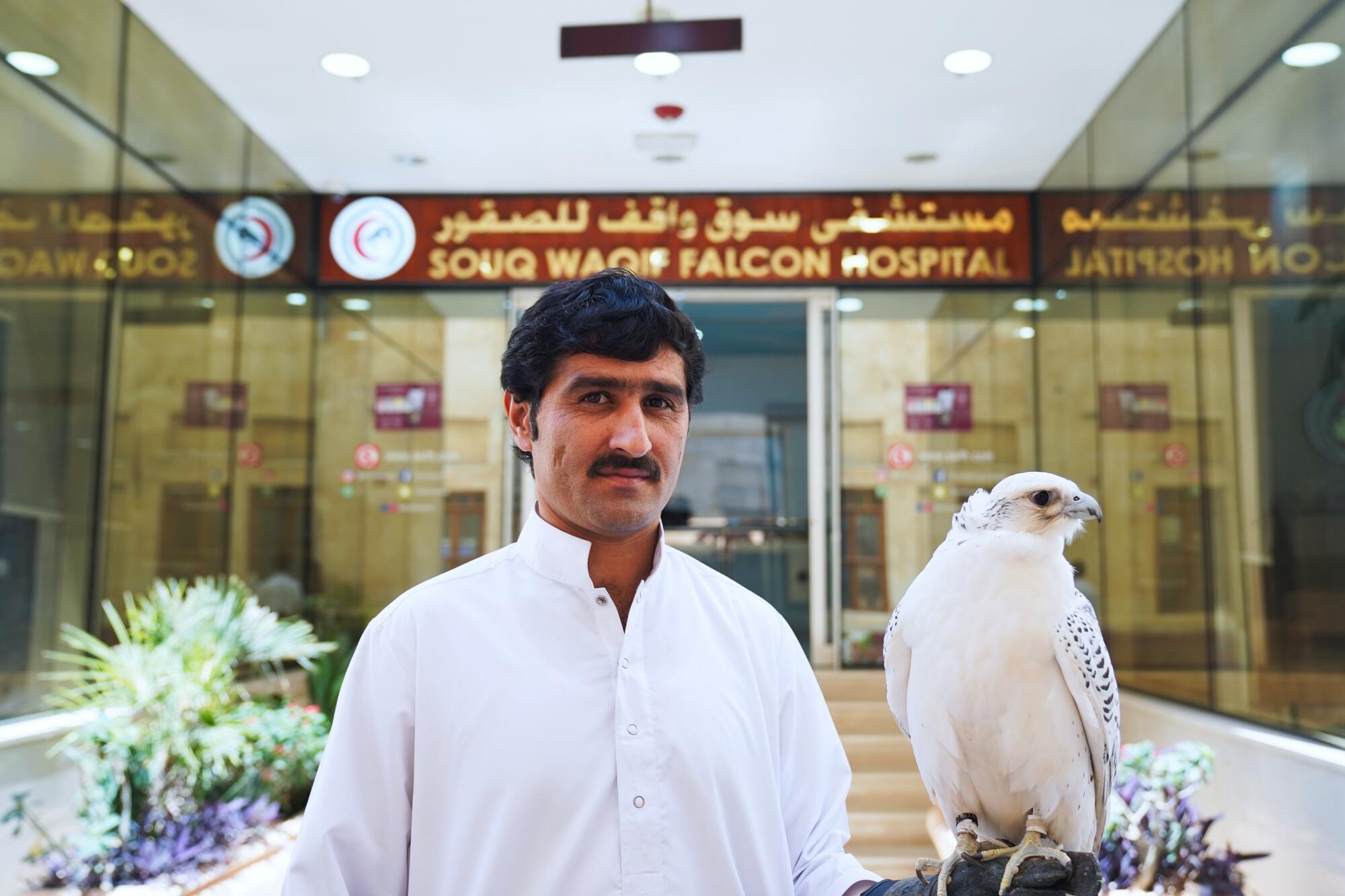
Falconry in the Middle East goes back more than 5,000 years and was introduced to the sandy Arabian peninsula that became Qatar by humble Bedouin tribes. Nomadic people used the birds to hunt prey such as the Houbara bustard, a large, fast bird that has been hunted so aggressively it is now an endangered species in Qatar.
The skills the Bedouin learned while hunting eventually became the basis for the sport still practiced in Qatar. But if that sport hasn’t changed over the centuries, just about everything else about falconry has.
It’s no longer a pursuit for humble tribal people, for example, but rather a hobby for the rich — which, in Qatar, is just about everyone since the country’s citizens have the highest per-capita income in the world and pay nothing for electricity, land, water or healthcare.
Falcons are the fastest members of the animal kingdom, capable of reaching speeds of more than 240 mph during dives. And prized birds, many of which are imported to Qatar, are sold in markets or through private dealers for tens of thousands of dollars.
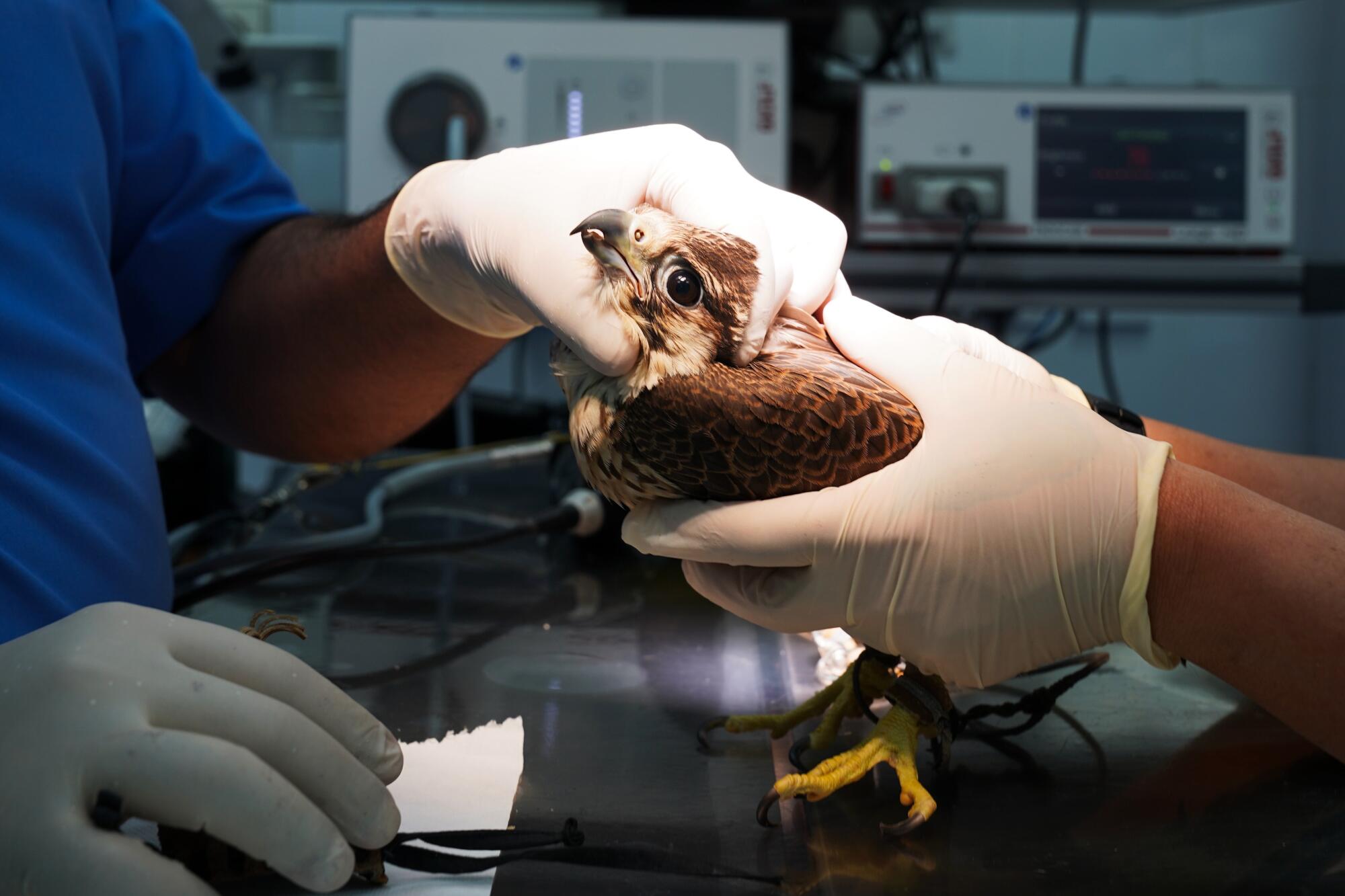
“The preference depends on the genes,” Alkarkhi said. “One cannot judge the preference of one over the other, so the owners of farms that crossbreed must choose the distinctive characteristics of the bird before proceeding to breed it. Qatari falconers have very good knowledge about falcons and their diseases.”
The equipment used in the sport, such as four-wheel-drive vehicles and radio monitors, can cost hundreds of thousands more, which is why falconry has gone from something Bedouins did to put food on the table to a status symbol, with princes and emirs competing to buy or raise the best birds, some of which are valued in the millions.
It has also caused the occasional diplomatic rift. Members of Qatar’s ruling Al-Thani family were arrested three years ago and charged with stalking precious birds during a falcon-hunting trip to Pakistan in 2019. Four years before that, 26 Qataris, including members of the ruling family, were kidnapped at gunpoint and held for 16 months before being released in Iraq following complex negotiations that also included the evacuation of civilians from war-torn Syria.
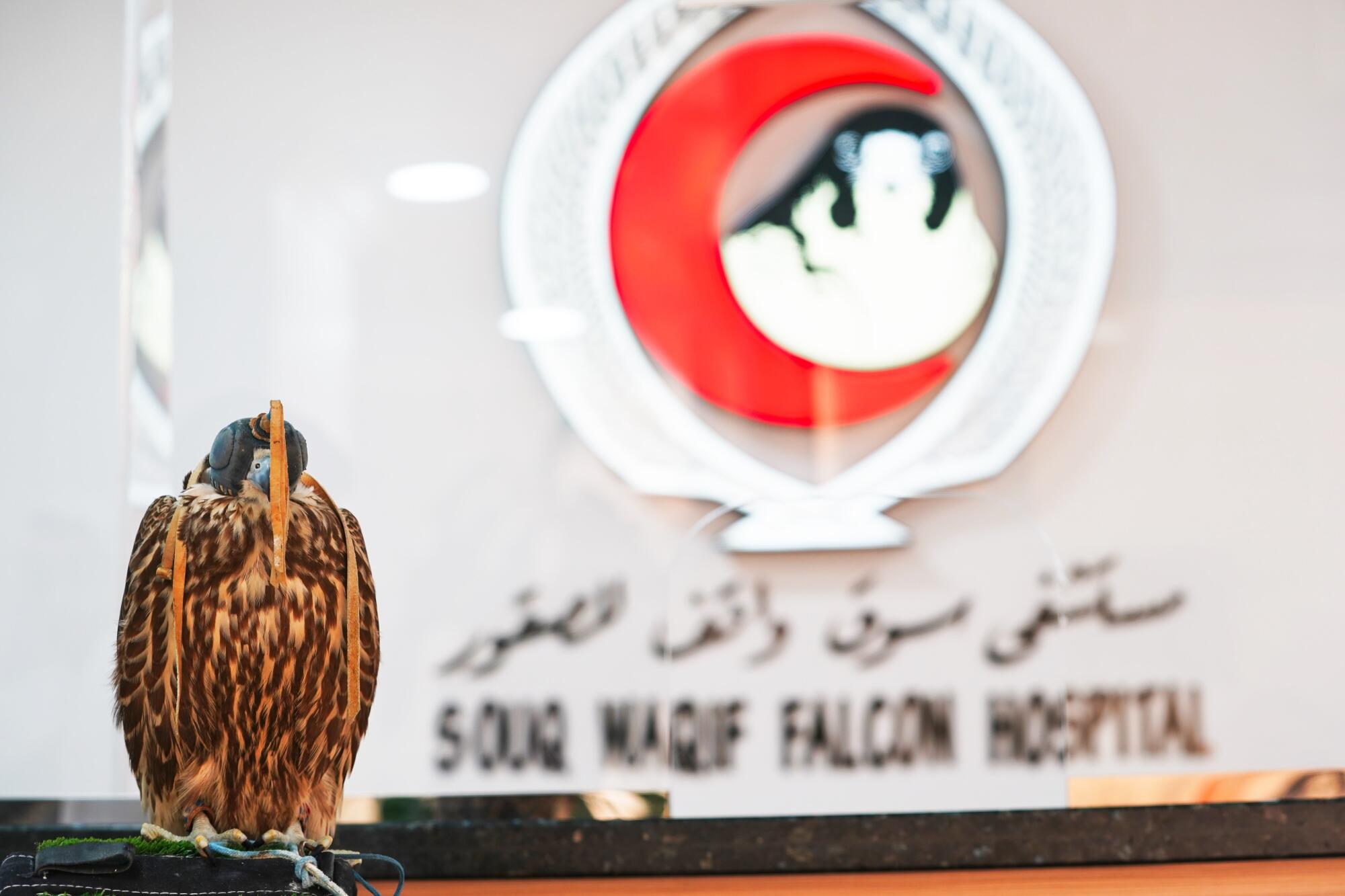
Protecting the investments of royals and commoners explains why hospitals such as Alkarkhi’s treat as many as 150 falcons a day. During the peak season, from September to February, the falcon perch in the hospital’s waiting room frequently becomes so crowded it needs a waiting room of its own.
“They are part of the family. If anything happens to [them], they take it to the hospital for a check-up and necessary services,” Alkarkhi, who has a master’s degree in avian pathology from the University of Baghdad, said of his clients.
The hospital, which opened in 2008, could hold its own against any modern medical facility for humans, boasting X-ray and gene-sequencing machines and equipment for performing endoscopies and processing blood, fecal and kidney samples. The staff of nearly two dozen, most of whom are foreign-born, can handle more than 200 services from cosmetic procedures such as beak adjustments and feather replacements to as invasive surgery, Alkarkhi said.
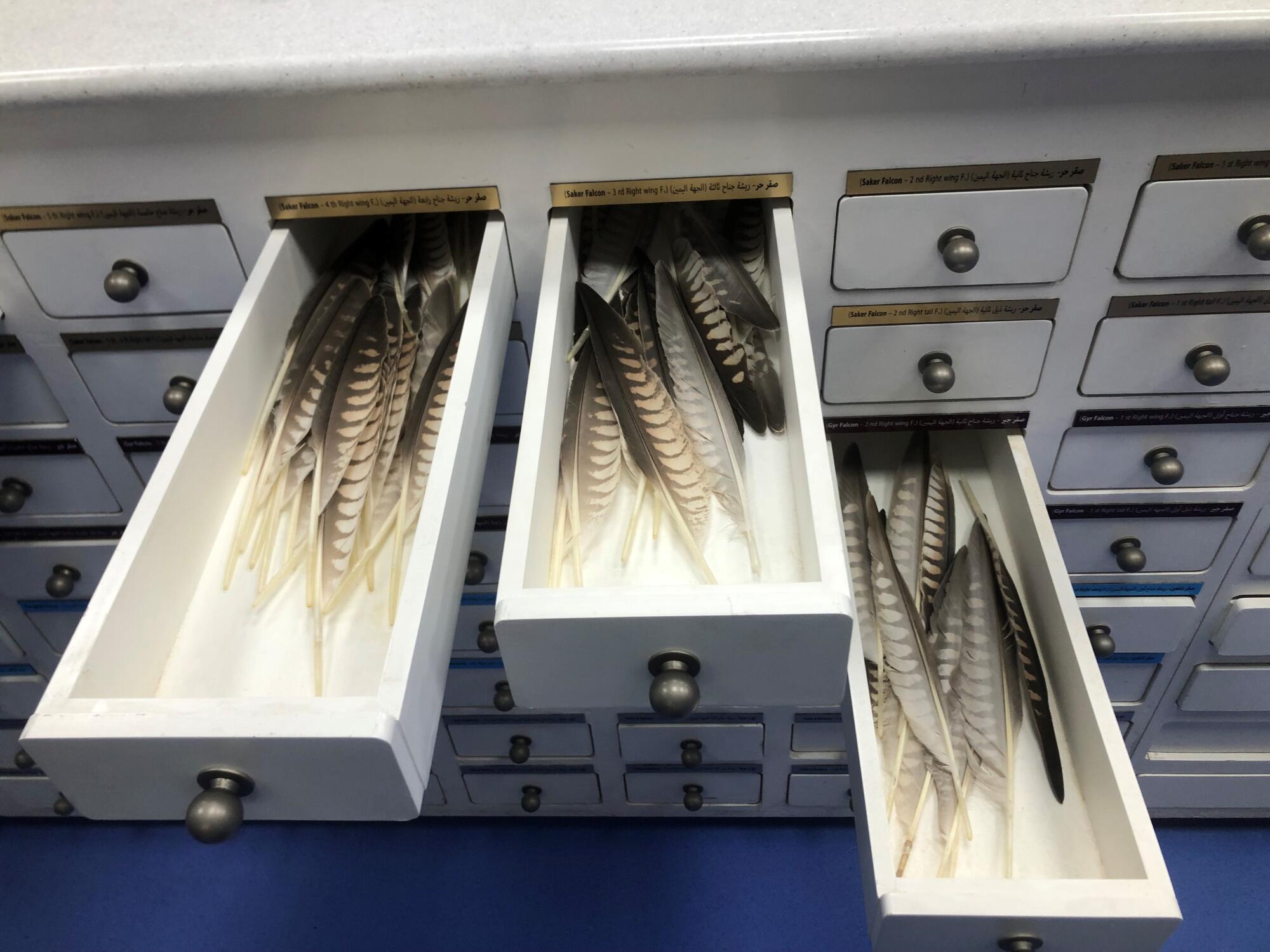
On a recent summer morning, veterinarians and technicians in white lab coats, or green and blue medical scrubs with the circular logo of the Souq Waqif Falcon Hospital on the left breast, bustled between spacious examination rooms and counters topped with computers and high-powered microscopes. One man, wearing a yellow leather glove as protection against razor-sharp talons, carried a falcon down one of the wide hallways.
Because the three-floor facility is subsidized by Sheikh Tamim bin Hamad al-Thani, Qatari’s ruler, Alkarkhi said hospital visits can cost as little as $5.
But the royal treatment doesn’t stop with healthcare. A Saudi prince once bought individual seats on a commercial flight for 80 of his falcons. At least four Middle Eastern airlines — Qatar, Emirates, Etihad and Royal Jordanian airways — allow falcons to fly in the main cabin of their planes, provided they have a ticket and a passport to prove they aren’t being stolen.
UCLA history professor James Gelvin, author of “The Arab Uprisings: What Everyone Needs to Know,” said the attention and investment Qatar has made in falconry is important for a young country seeking an identity and a place on the world stage.
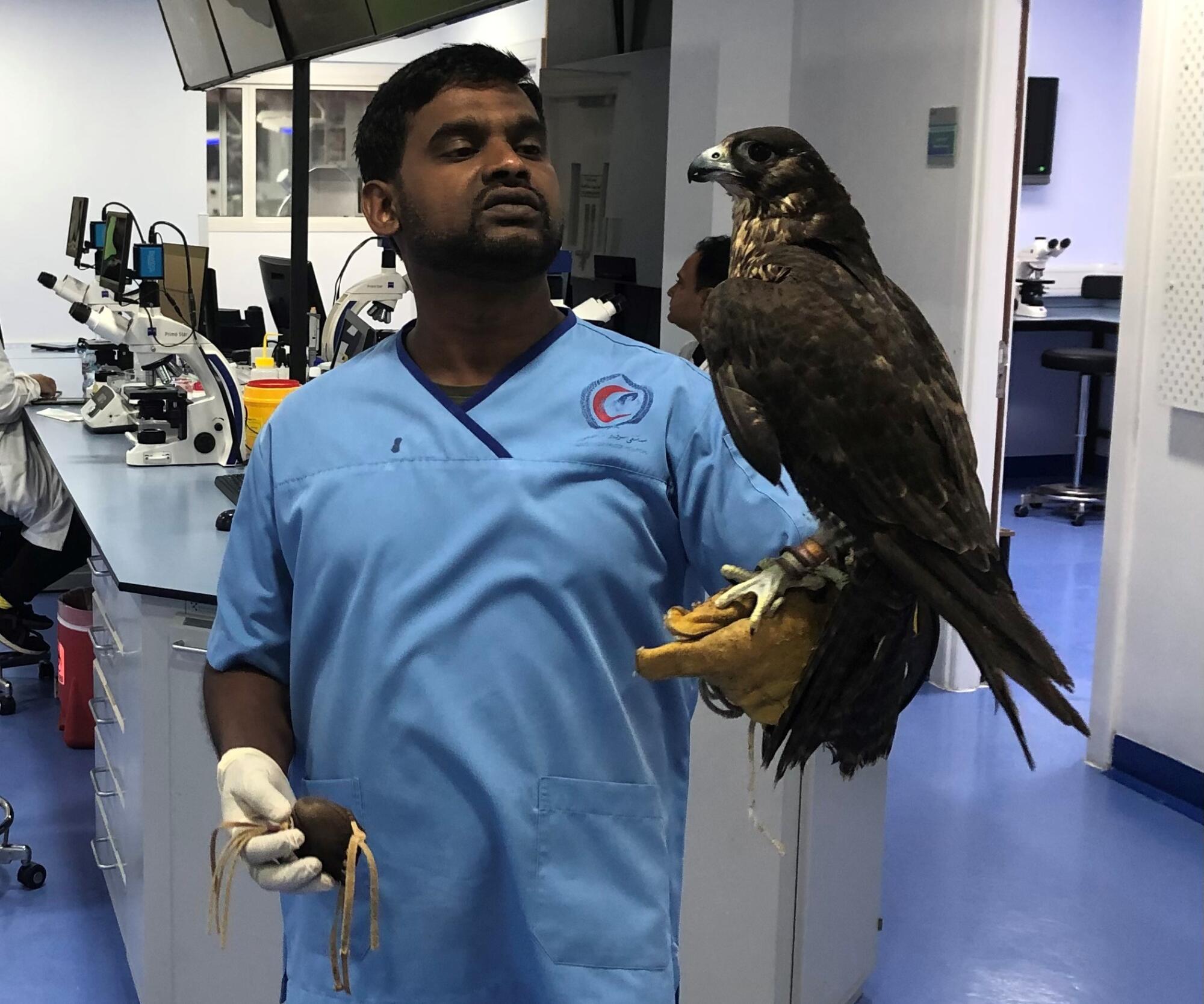
It’s why a 7½-ton, 40-foot steel and aluminum statue of a fearsome-looking — if kitschy — falcon was installed last year outside the departures terminal of Doha’s international airport. And it’s why the city’s trendy Katara Cultural Village has staged an annual falcon exhibition each September since 2017, drawing more than 180 companies from 20 countries to promote the sport and the culture that surrounds it.
“You have falconry, you have dates, you have pearls,” Gelvin said, ticking off three ancient pillars of regional culture that predate the establishment of any Arab Gulf countries. “All these states, they’re brand new. So what they have to do is invent some sort of past.
“It’s called in the historical profession the invention of tradition. You pick a tradition and you say: ‘Hey, we’re Scottish, so therefore we’re going to wear kilts. And that’s really going to be important for us because that’s what our national identity is.’ [Or] ‘we’re Qataris, therefore falconry is important for us.’ It’s actually part and parcel of the state-building process that’s going on.”
Which is another way of saying it’s not just for the birds.
Christian Pulisic hopes to pull off a Landon Donovan and help the U.S. surpass expectations for the World Cup in Qatar after the disappointment of 2018.
Watch L.A. Times Today at 7 p.m. on Spectrum News 1 on Channel 1 or live stream on the Spectrum News App. Palos Verdes Peninsula and Orange County viewers can watch on Cox Systems on channel 99.



